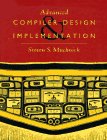
Programming Languages and Translators
Fall 2013
 |
||
| COMS W4115 Programming Languages and Translators Fall 2013 |
||
Class meets Mondays and Wednesdays 4:10 - 5:25 PM 833 Mudd.
| Name | Office hours | Location | |
|---|---|---|---|
| Prof. Stephen A. Edwards | sedwards@cs.columbia.edu | see my home page | 462 CSB |
| Qiuzi `Jessie' Shangguan | qs2130@columbia.edu | Th 4-6 | Small meeting area, Fifth floor, CS Building |
| Mengqi Zhang | mz2369@columbia.edu | W 2-4 | Small meeting area, Fifth floor, CS Building |
| John Sizemore | jcs2213@columbia.edu | M 5:30-7:30 | Mudd TA Room |
| Julian Rosenblum | jsrmath@gmail.com | T 3:30-5:30 | Mudd TA Room |
The goal of PLT is to teach you both about the structure of computer programming languages and the basics of implementing compilers for such languages.
The course will focus mostly on traditional imperative and object-oriented languages, but will also cover functional and logic programming, concurrency issues, and some aspects of scripting languages. Homework and tests will cover language issues. You will design and implement a language of your own design in a semester-long group project.
While few of you will ever implement a full commercial compiler professionally, the concepts, techniques, and tools you will learn have broad application.
COMS W3157 Advanced Programming: You will be dividing into teams to build a compiler, so you need to have some idea how to keep this under control. Quick test: you need to know about Makefiles and source code control systems.
COMS W3261 Computability and Models of Computation: You will need an understanding of formal languages and grammar to build the parser and lexical analyzer. Quick test: you must know about regular expressions, context-free grammars, and NFAs.
Alfred V. Aho, Monica Lam, Ravi Sethi, and Jeffrey D. Ullman. |
 |
Michael L. Scott. |
 |
Andrew W. Appel. |
 |
Lawrence C. Paulson |
 |
Steven S. Muchnick |
 |
The focus of 4115 is the design and implementation of a little language. You will divide into teams and design the goals, syntax, and semantics of your language, and implement a compiler for your language.
Exception: CVN students will do the project individually.
This is a critical part of the project and will be a substantial fraction of the grade.
Include the following sections:
 |
The Java white paper from Sun Microsystems |
| C# Introduction and Overview |
 |
Dennis M. Ritchie, C Reference Manual |
| Kernighan & Ritchie, The C Programming Language | |
| The C Language Reference Manual (DEC) | |
 |
The C Language Reference Manual (SGI) |
| The C Language Reference Manual (Microsoft) | |
| Stroustrup, The C++ Programming Language | |
 |
The Java Language Specification |
 |
The C# Language Specification |
| Aho, Kernighan, and Weinberger, The AWK Programming Language |
|
pubCrawl:
Distributed Systems Programming Language
(SE)
Matthew Dean, Sireesh Gururaja, Kevin Mangan, and Alden Quimby |
|
Cpi:
Simplified C compiler for ARM V6
(SE)
Edward Garcia, Niket Kandya, Naveen Revanna, and Sean Yeh |
|
SMURF:
Serial MUsic Repeated as Functions
(JR)
Van Bui, Lianne Lairmore, Lindsay Neubauer, Richard Townsend, and Kuangya Zhai |
|
slang:
Discrete-event Simulation Language
(QS)
Olivia Byer, Mauricio Castaneda, Joshua Itwaru, Dina Lamdany, and Tony Ling |
|
vector:
High-Level GPU Language
(SE)
Harry Lee, Howard Mao, Zachary Newman, Sidharth Shanker, and Jonathan Yu |
|
Lorax:
Tree-Focused Language
(QS)
Douglas Bienstock, Chris D'Angelo, Zhaarn Maheswaran, Timothy Paine, and Kira Whitehouse |
|
SMPL:
Parallel Programming Language
(MZ)
AjaySiva Challa, Andrei Papancea, and Devashi Tandon |
|
PLATO:
Programming Language for Abstract Transformation Operators
(QS)
Yasser Aboudkhil, Daniel Perlmutter, and Joaquin Ruales |
|
CAL:
Concise Animation Language
(MZ)
Jingyi Guo, Tianliang Sun, and Xinan Xu |
|
Calcul^2:
Calculus Calculating Language
(QS)
Kewei Ge, Junde Huang, Zhan Shu, Wenting Yin, and Jinxi Zhao |
|
CHIL:
CSS HTML Integrated Language
(JS)
Gil Chen-Zion, Ami Kumar, Annania Melaku, and Isaac White |
|
DJ:
MIDI Synthesizer Language Proposal
(JR)
Thomas Elling, William Falk-Wallace, Hila Gutfreund, and Emily Lemonier |
|
FDL:
File and Directory Manipulation Language
(SE)
Rupayan Basu, Pranav Bhalla, Cara Borenstein, Daniel Garzon, and Daniel Newman |
|
GAMMA:
Strict Yet Fair Language
(QS)
Benjamin Caimano, Weiyuan Li, Matthew Maycock, and Arthy Sundaram |
|
LGA:
Language for Graphics and Animation
(MZ)
Yuanli Dong, Pindan Hao, Hang Qian, and Tian Xia |
|
Lullabyte:
Music Language
(JR)
Chih-Kai Chang, Louis Croce, Nathan Hayes-Roth, Andrew Langdon, Benjamin Nappier, and Peter Xu |
|
Melody:
Music Language
(JR)
Tong GE, Jingsi Li, and Shuo Yang |
|
SKL:
Sketchpad Graphics Language
(MZ)
Yichen Liu, Yan Peng, and Zhongyu WANG |
|
SPWAG:
Simple Page Web App Generator
(JS)
Richard Chiou, Aftab Khan, Aditya Majumdar, Yunhe Wang, and Lauren Zou |
|
sIP:
Simplified Image Processing
(JS)
Vaibhav Jagannathan, Bhargav Sethuram, and Shubhanshu Yadav |
|
YOLOP:
Your Octothorpean Language for Optical Processing
(JS)
Lisa Li, Jonathan Liu, and Sasha McIntosh |
| 40 % Project |
| 20 % Midterm |
| 30 % Final |
| 10 % Homework |
You will collaborate with your own small group on the programming project, but you may not collaborate with others on homeworks. Groups may share ideas about the programming assignments, but not code. Any two groups found submitting similar code will receive zero credit for the whole assignment, and repeat offenses will be referred to the dean. See the Columbia CS department academic policies for more details.